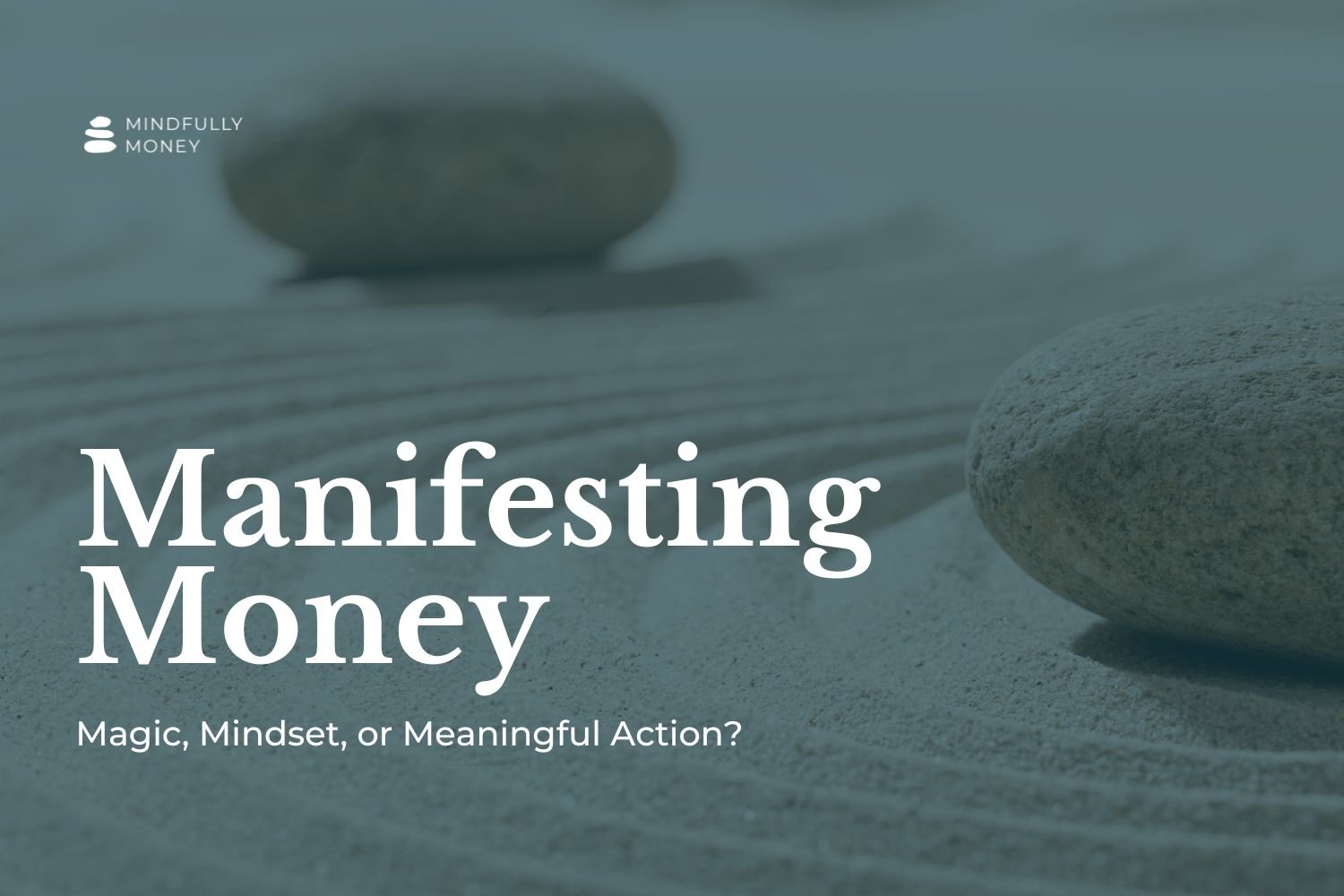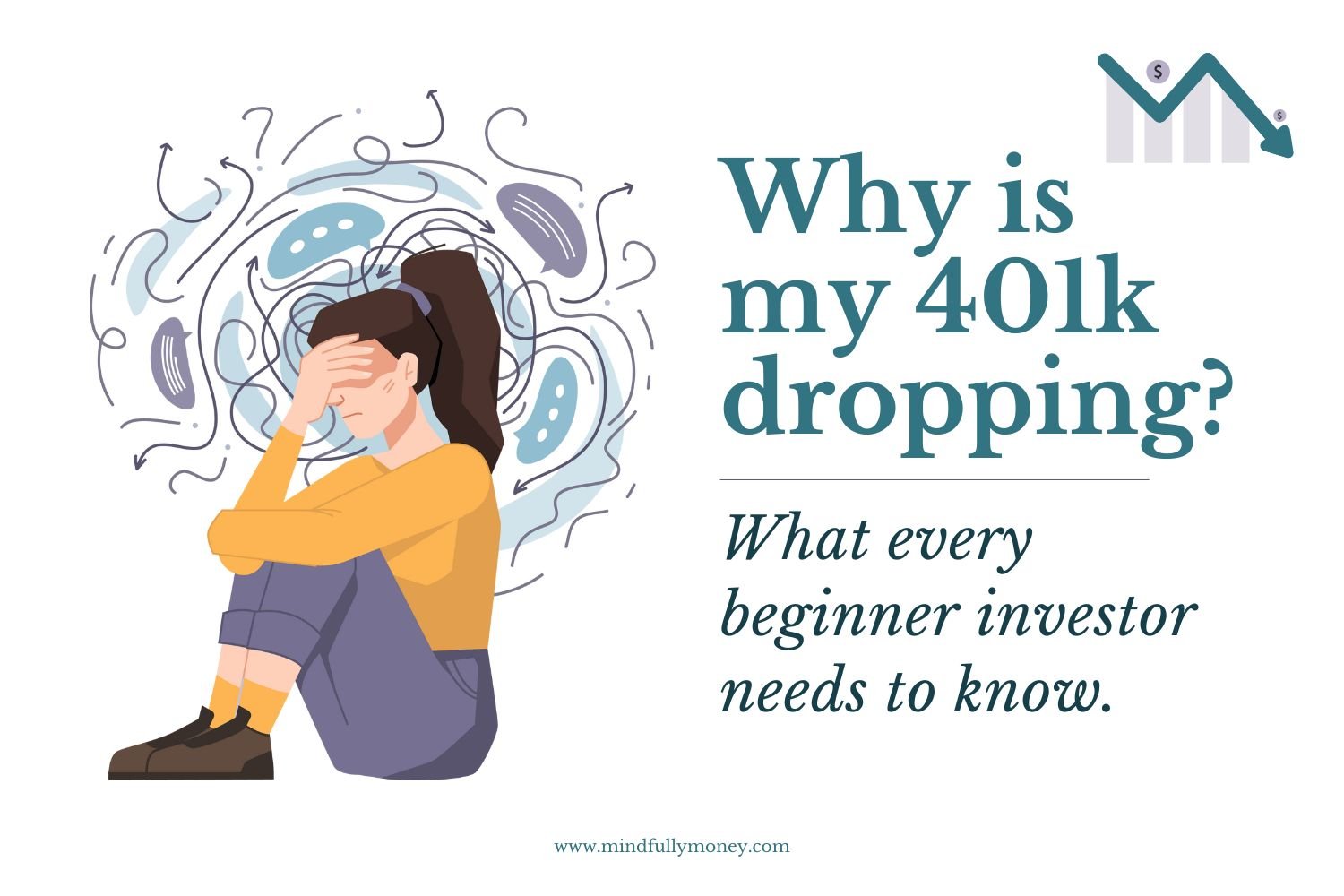Resources to Help You Manage Your Money
Is It Worth It? 7 Questions to Ask Yourself Before You Buy
Is it worth buying? Use these 7 questions to make smarter spending decisions, avoid impulse purchases, and choose what truly adds value to your life.
How to Stop Overspending and Feel Good About Money
Learn how to stop overspending without shame or guilt. Discover mindful ways to feel good about money and make choices that align with your values.
When Good Enough is Better Than the Best
Feeling overwhelmed by endless choices? Learn why chasing the ‘best’ option often leads to decision fatigue, overspending, and stress—and how embracing ‘good enough’ can save you time, money, and energy.
Why Traditional Budgets Don’t Work (and What to Try Instead)
Discover why traditional budgets fail and how The Intentional Money Method brings clarity, confidence, and flexibility. Learn a simple, stress-free approach to managing your money so you feel empowered and at peace with your finances—all without guilt or deprivation.
Financial Tips for Single Moms
Discover practical financial tips for single moms to manage money with confidence. Learn how to tackle bills, create a spending plan, and find support while balancing life’s demands. Gentle, encouraging advice to help single moms take small, doable steps toward financial clarity and peace of mind.
Why Working With a Female Financial Coach Matters
Women deserve money guidance without shame, guilt, or judgment. Learn how financial coaching for women helps you stop overspending, manage debt, and feel confident about your finances. Perfect for women who feel overwhelmed or anxious about money.
How to Make Your Budget More Flexible (So You Can Actually Stick to It)
Tired of rigid budgets that don’t work? Learn 5 practical ways to make your budget more flexible and realistic, so you can build a plan that works with your life, not against it.
Overspending: Why We Want More and How To Find “Enough”
Are you tired of beating yourself up for overspending? This article explores why so many women feel out of control with their money—and reveals the science behind those urges, so you can stop the cycle of shame. Discover a new, compassionate approach to managing spending and find realistic steps to define your personal “enough” without deprivation or guilt.
Standing on the Ledge: What Fear Teaches Us About Money and Ourselves
Ever felt anxious about money or caught yourself making impulse buys? In this relatable story, I share what stepping onto the Willis Tower Skydeck taught me about fear, emotions, and spending. You’ll learn why your brain reacts the way it does—and get gentle, practical tips to feel calmer and more in control with your finances.
Why Can't I Stop Spending Money? (It's Not What You Think)
Many of our spending decisions happen on autopilot, driven by habits and routines we barely notice. This article explores why we spend without thinking, how our brains form these patterns, and offers gentle, practical tips to help you interrupt automatic spending and make more intentional choices.
10 Practical Ways to Cut Expenses and Save Money—Without Feeling Deprived
Discover 10 practical ways to cut expenses and save money—without feeling deprived. Learn how to make more intentional money decisions and get ideas to help you reduce costs of food, bills and more. These actionable tips help you reduce expenses and feel more in control—without giving up everything you love.
How to Start a Budget
Have you ever tried creating a budget, but given up because it was too overwhelming, too restrictive, or just too much work? If so, this step-by-step guide to budgeting is for you. Learn how to start a budget in a simple way that gives you flexibility and eliminates the need for complicated tracking systems and severe restrictions. Get started with an easier budget today!
How to Track Your Spending (Especially When You Use Credit Cards)
Learn how to track your spending even if you use credit cards. Knowing where your money goes can seem challenging, but with these tips, you'll learn how to create a system so you know exactly how much you spend. Once you know this, you can create a more effective budget, save more money, and work toward achieving your financial goals.
Feeling Embarrassed and Ashamed Of Debt? Take These Steps to Overcome Financial Anxiety, Guilt, and Shame
Feeling embarrassed and ashamed of debt? You’re not alone. Learn how to overcome the guilt, shame, and embarrassment of debt, reframe your money story, and create a clear plan for financial freedom. Discover practical steps and compassionate support to break free from debt shame and take control of your finances.
Free or Cheap Summer Activities for Kids and Families
Discover the ultimate list of free and cheap summer activities for kids, teens, adults, and families. Enjoy fun, budget-friendly ways to make the most of your summer!
How to Eat Organic on a Budget: Practical Tips for Affordable Healthy Eating
Discover actionable strategies for how to eat organic on a budget, including shopping tips, meal planning, and ways to save money on organic groceries.
Can You Really Manifest Money?
Can you manifest money? This post explores the truth behind money manifestation, the power of mindset, and practical steps to improve your finances. Learn why attention, belief, and identity matter more than wishful thinking—and how to start real change today.
The Best Ways to Pay Off Credit Card Debt
Struggling with credit card debt? Discover the best ways to pay off credit card debt, including the pros and cons of debt consolidation, balance transfers, snowball vs. avalanche methods, and more. Learn how to choose the right strategy for your financial situation and avoid common pitfalls. Take control of your debt and start your journey to financial freedom today!
Why Is My 401k Dropping? What Every Beginner Investor Needs to Know
Worried about your 401k dropping? Market downturns can feel scary, but they don’t mean you’re losing money—unless you sell. This beginner-friendly guide explains why your balance is down, what it actually means, and what to do (or not do) right now. Learn how to stay calm, stick to your long-term plan, and avoid costly mistakes.
Financial Goals for the New Year: Your Complete 2025 Money Guide
Start the new year strong with achievable financial goals! From building savings and paying off debt to creating a spending plan and aligning your money with your values, this guide offers practical tips to reset your finances and transform your future. Discover how small, consistent actions can lead to lasting change.




















